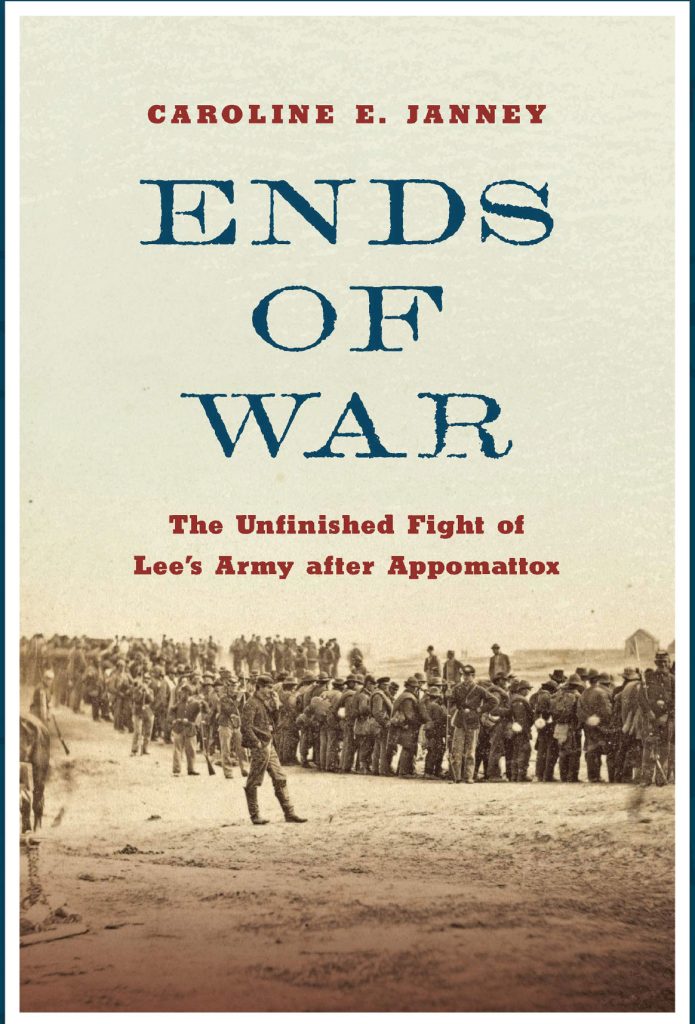
Book Review: Caroline E. Janney, Ends of War
by Burrus M. CarnahanCaroline E. Janney, Ends of War: The Unfinished Fight of Lee’s Army after Appomattox Reviewed by Burrus M. Carnahan How can a democracy turn from a state of civil war to a state of peace? After April 9, 1865, US military officers, government officials, and ordinary citizens wrestled with this problem in the months following Lee’s […]
Read More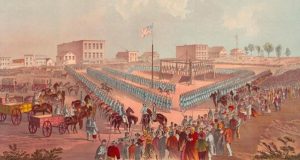
Lincoln & The 1862 Minnesota Sioux Trials
by Burrus M. CarnahanLincoln & The 1862 Minnesota Sioux Trials Burrus M. Carnahan One hundred and fifty years ago the Upper and Lower Sioux Reservations were located in southwestern Minnesota on a thin strip of land on the south side of the Minnesota River. After their traditional hunting grounds had been depleted by fur trapping and white settlement, […]
Read More
Book Review: Diana Schaub, His Greatest Speeches: How Lincoln Moved the Nation
by Burrus M. CarnahanDiana Schaub, His Greatest Speeches: How Lincoln Moved the Nation Reviewed by Burrus Carnahan Diana Schaub has written a thought-provoking book that may be the first of a new genre of Lincoln studies – reflections on his ideas in the context of the mob violence that struck major cities in 2020 and the riot at the […]
Read More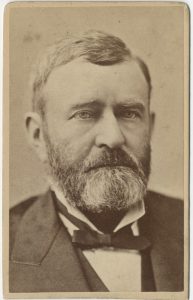
The Grant Administration & International Law
by Burrus M. Carnahan“Respect the Rights of All Nations, Demanding Equal Respect for Our Own”[1] The Grant Administration & International Law Burrus Carnahan In the last decade, historians have reassessed the presidency of Ulysses S. Grant. Previously considered one of our worst presidents, new scholarship has discovered accomplishments and strengths earlier ignored. Grant wanted “let us have peace” […]
Read More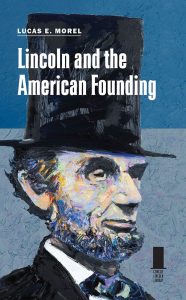
Book Review: Lucas Morel, Lincoln and the American Founding
by Burrus M. CarnahanLucas Morel, Lincoln and the American Founding Reviewed by Burrus M. Carnahan In the fall of 2020, Professor Lucas Morel of Washington and Lee University spoke at the University of Colorado on “The 1619 Project as Missed Opportunity.” His point was that Nicole Hannah-Jones depicted American history as a racial zero-sum game – that any […]
Read More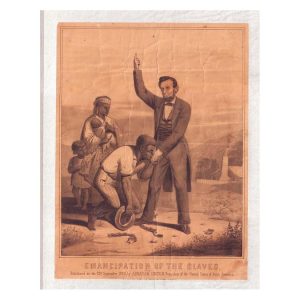
The Nature of War: An Interview with Burrus M. Carnahan
by Burrus M. CarnahanThe Nature of War: An Interview with Burrus M. Carnahan Sara Gabbard: A friend told me that a college professor once told the class that money is the only real cause of war throughout history. Do you agree? Burrus Carnahan: No. For one thing, war is much older than money. In Western civilization, money, in […]
Read More
Book Review: The Calculus of Violence by Aaron Sheehan-Dean
by Burrus M. CarnahanSheehan-Dean, The Calculus of Violence: How Americans Fought the Civil War For decades, historians have debated whether the American Civil War was the first modern, total war, foreshadowing the World Wars of the 20th Century, or whether it was more akin to the limited wars of the 18th Century. In his thorough study, The […]
Read More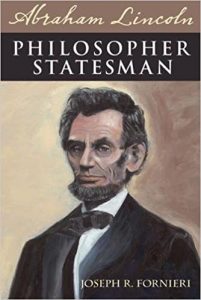
Book Review: “Abraham Lincoln: Philosopher President”
by Burrus M. CarnahanJoseph R. Fornieri, (Carbondale, Southern Illinois University Press, 2014). In the preface to Abraham Lincoln: Philosopher President, Joseph Fornieri recounts President Lincoln’s response to a group of serenaders after his 1864 reelection. Recalling the events of the bitter, divisive campaign, the president reflected that human nature did not change. “In any future great national […]
Read More
An Interview with Burrus M. Carnahan
by Burrus M. CarnahanAn Interview with Burrus M. Carnahan regarding His Book Act of Justice: Lincoln’s Emancipation Proclamation and the Law of War (University Press of Kentucky, 2007) By Sara Gabbard Sara Gabbard: Much has been written about the Emancipation Proclamation and Lincoln’s decision to issue it. How is your book different and what does it add? Burrus […]
Read More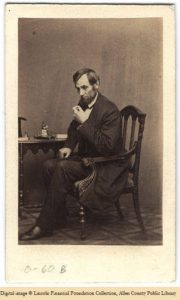
Lincoln’s Clemency: The Policy Limits
by Burrus M. CarnahanAbraham Lincoln has a well-deserved reputation as a merciful man who liberally exercised his presidential pardoning power. John Hay was “amused at the eagerness with which the President caught at any fact which would justify him in saving the life” of a condemned man.[1] Judge Advocate General Joseph Holt, his chief advisor on military trials, […]
Read More